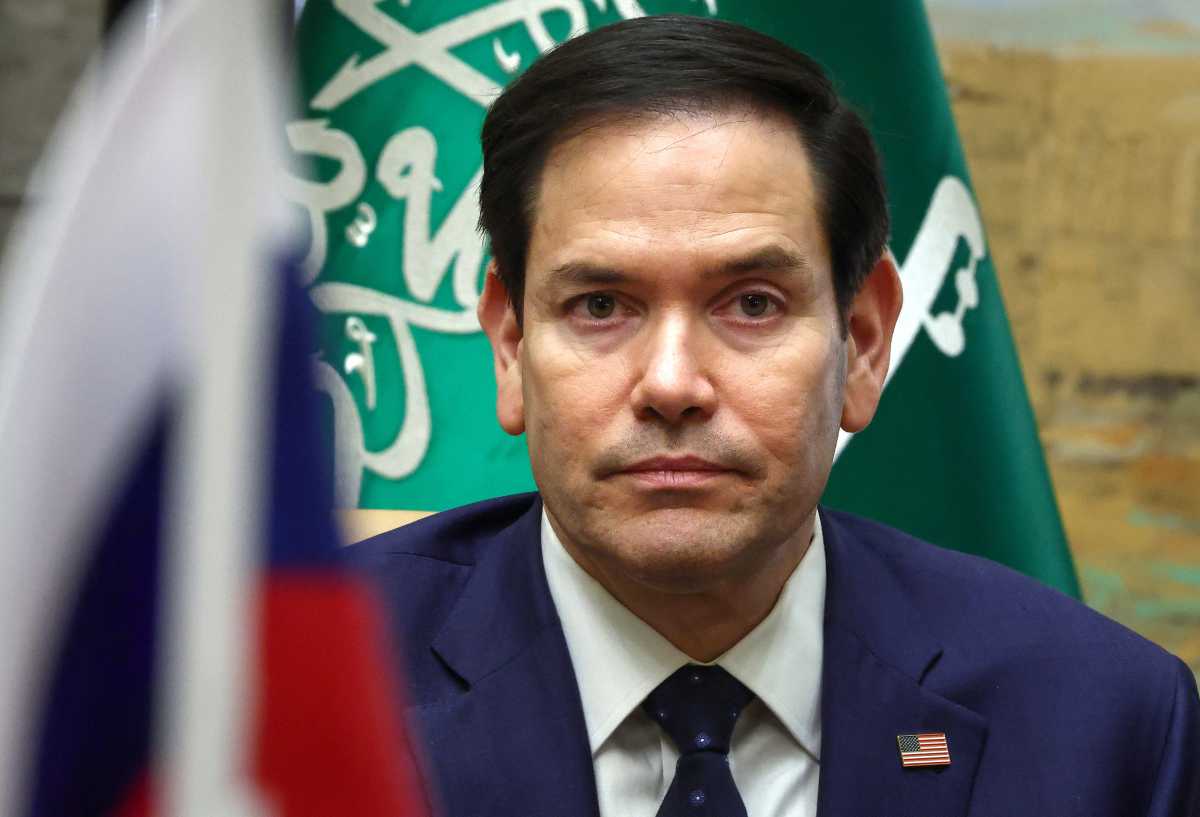US Secretary of State Marco Rubio attends an interview after meeting with Russian officials, at Diriyah Palace, in Riyadh, Saudi Arabia, on Feb. 18, 2025.
Photo by EVELYN HOCKSTEIN/POOL/AFP via Getty Images
Bahamian officials said on Friday that they are waiting for the US to approve the new payment system for Cuban Medical Brigade workers after submitting the new arrangements to Washington.
Bahamas Minister of Health Mike Darville said the US had requested to see the new contracts and these were submitted recently.
If and when approved, the health ministry would hire the small contingent of Cuban medics directly rather than through a state intermediary agency that had taken the majority of the workers’ monthly salaries and remitted a small amount to them. This system has been in place for decades for almost all of the Caribbean nations that host Cuban medics.
Leaked documents published earlier this year appear to show that the contracted workers earned less than 15 % of their full salaries, with the remainder going to a Cuban state agency to earn valuable foreign exchange for the cash-strapped nation. The sum proffered showed that the workers earned around $12,000 monthly but, in effect, had carried home only $1,200, with the rest snapped up by the Cuban government.
Darville told reporters that high-level talks with the Trump administration on the issue had been fruitful. Senior administration officials, including Secretary of State Marco Rubio, had described the current payment system as a form of forced labor and human trafficking, as Washington had threatened to cancel the visas of Caribbean government officials and other officials administering or linked to the program.
The US’s discomfort with the existing arrangements initially pushed Antigua, the Bahamas, and Guyana to signal their willingness to immediately change the system to direct and full payment to the Cubans. It is unclear whether any other CARICOM member state has done so, but nearly all the governments have told the US, with reservations, that the Cubans are a key part of their health sectors and have no plans to ditch the program. He said authorities are awaiting approval from the US.
“If that comes back favorable, many of the Cuban professionals who are here will go into a direct contractual agreement with the Ministry of Health and not the Cuban government itself. It is our responsibility to work very closely with our partners, the United States, to clarify any misconceptions about the improper use of labor. I could say this much, and I’m sure the ministry of foreign affairs would say the same thing, we don’t consider ourselves to be in violation with any labor laws.”
From all appearances, the new system will likely win approval from Washington as American Chargé d’Affaires Kimberly Furnish had recently praised the efforts of local officials to remedy the situation, saying that “we are very proud of the Bahamian efforts to make that so, and we see success in that effort. All people deserve to have their salaries given directly to them without the government intervening. So, we’ve worked very closely with the Bahamian government to ensure that if there are Cuban nationals working here, that they’re being paid directly and treated humanely.”
